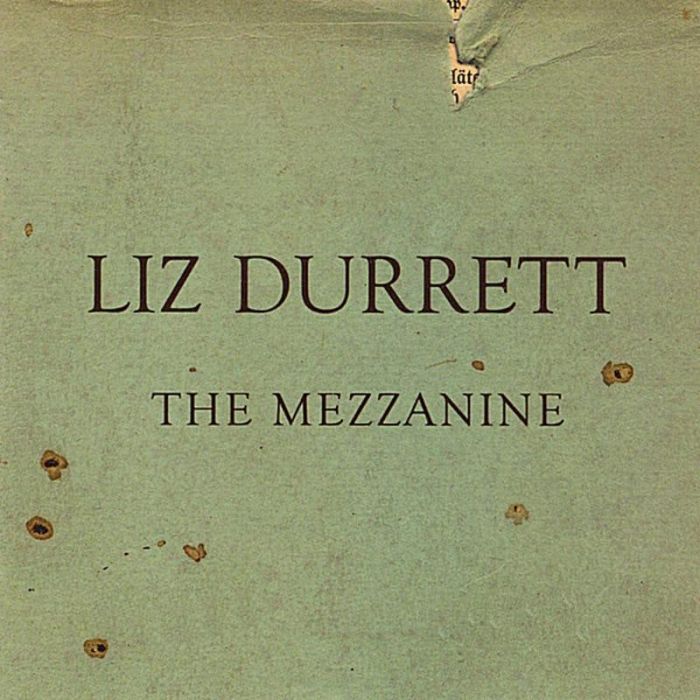The Mezzanine by Liz Durrett (Review)

Liz Durrett released her first album, Husk earlier this year. However, the album had actually been recorded nine years earlier, when Durrett, the niece of famous singer/songwriter Vic Chesnutt, was still a teenager. Husk immediately garnered Durrett all manner of praise and comparisons to the likes of Chan Marshall (Cat Power) and Hope Sandoval (Mazzy Star). And so Durrett is set to release only her second album in a decade. Titled The Mezzanine, it finds Durrett again teaming up with Chesnutt, his wife Tina, and others.
The key to “getting” The Mezzanine is that a number of these of these songs were written in an Oakland attic. There’s something magical about attics, even if you’re not a kid stumbling across one in your grandparents’ house. They’re magical places, safe and dark places that allow you to escape the rest of the world, hidden places that can become refuges and sanctuaries. It’s this sense of refuge that allows for a recording as sparse, mysterious, and intimate as this one.
The press sheet claims that The Mezzanine is a “hi-fi affair,” at least when compared to Husk (which I, admittedly, have not heard). Be that as it may, I still find “hi-fi” to be something of a misnomer when describing this album. It’s not totally stripped down and skeletal, composed of just Durrett and her guitar singing into a rickety 4-track in some dusty attic well past the stroke of midnight. No, it’s not that bare.
However, there’s little-to-none studio polish on this record, and the record is all the stronger for the lack of it. Durrett’s smoky voice is put up front and center, and wisely so. Durrett’s rich voice sounds much more world weary than her age might bely, especially on the lament “Marlene,” where it flutters and barely holds together. While the Cat Power and Mazzy Star comparisons are justified, I actually hear a good deal of Over The Rhine’s Karin Bergquist here as well, albeit with little less bluesy swagger.
Backing her are cleanly picked acoustic and electric guitars, organs, harmonica, brushed drums, and just enough space to let creaky atmospherics and nocturnal textures float through as they please. One can hear drizzling electronics on “Knives At The Wall” form a barely audible yet still scintillating backdrop for the song and the distant wheeze of an organ lends a brooding sense to “All The Spokes.”
Durrett layers her voice on the title track, giving lyrics like “In the yard/Small things beat you down/‘Til you could not leave the house” a claustrophobic spookiness, which is aided by some faint guitar scrapings that might have meandered over from a Torrez album. The piano on the short instrumental “Silent Partner” casts a funereal, Dust Bowl-like pall about it while the acoustic guitar and harmonica on “Shivering Assembly” bring with them a Morricone-esque pull. As a result, the song might have played over the end credits of some long-lost spaghetti western.
Unlike some singer/songwriters, whose work often feels more like vanity disguised as music, who use their songs as a vehicle to merely bitch and moan about trite stuff, it feels like there’s actually something at stake in Durrett’s music. Something exposed and raw, something worth exploring, something worth listening to. Durrett’s hushed-yet-raw voice always remains compelling, as if she’s grown exhausted from struggling with something, something ominous and beyond words, up there in the attic.